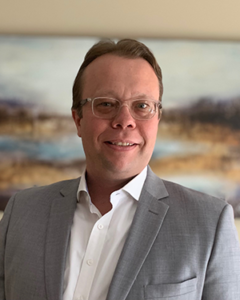Game Plan – Henry DeLozier‘s monthly column in Golf Course Industry Magazine – continues its series on staffing for success with the second of three installments. After looking at how the pandemic has afforded club and course managers the opportunity to reevaluate their teams and redefine job descriptions in Staffing for Success: Part 1, we turn to finding and hiring the right team members.
As businesses reshape themselves into leaner and more efficient operations, top performers are the best value their money can buy.
A great many Americans are currently unemployed and looking for a job. According to the U.S. Bureau of Labor Statistics, 6.7 percent of the labor force — more than 10 million people — is out of work. Finding top performers for rising needs in club management roles should be easy work, right? If only it were a simple matter of statistics.
As management professionals in any business know, the magic is finding the right person for the right job. With the war for talent continuing to escalate, we turn to three experts to help us identify the best practices for optimum staffing in these turbulent times.
Jim Collins: Get the right people on the bus
Step one, as management thinker Jim Collins advises in his bestseller “Good to Great,” is to start by “getting the right people on the bus, the wrong people off the bus, and the right people in the right seats” before heading down the proverbial highway. In other words, focus on “who” before determining “what.”
Those who build great organizations make sure they have a busload of people who can adapt and perform brilliantly no matter what comes next. Selecting the right people is a matter of clearly deciding what types of people — attitudes, talents, backgrounds, skillsets — are needed to enable your team to accomplish great things.
Jeff Bezos: Ask these three questions
The Amazon founder uses a straightforward three-question guide for hiring key employees. Bezos’ three questions offer direct application to the management of golf and private clubs and are particularly useful during unpredictable circumstances.
1. Will you admire this person?
“If you think about the people you’ve admired in your life, they are probably people you’ve been able to learn or take an example from,” Bezos says. This discipline requires that management first knows who he or she is and has a clear-eyed understanding of the strengths and benefits that are needed for any position. Hiring managers do well to ask themselves:
- What traits and attributes inspire me to be my best?
- What do we need?
- To what do we aspire?
2. Will this person raise the average level of effectiveness of the group they are entering?
Will the candidate increase the efficiency within the organization? Is he or she able to see around the corner and anticipate needs? Are they willing to challenge established norms and traditions? (Should course setup be executed in the afternoon instead of first thing each day? Can mechanical work be executed after hours by veterans who need extra work?)
3. Along what dimension might the person be a superstar?
Listen to candidates’ answers. Push for details. Ask follow-up questions to understand how your candidate thinks and imagines your operation. One is more likely to be a superstar when he or she is encouraged to make others better.
Regina Hartley: Hire the scrapper
Throughout her 25-year UPS career — working in talent acquisition, succession planning, learning and development, employee relations, and communications — Hartley has seen how people with passion and purpose will astound you when given the opportunity. That’s why she says, “Hire the scrapper.” She defines scrappers as people who have had to fight against the odds to get ahead. They differ from those she calls the “silver spoons” — people who have had clear advantages in their lives and from birth seem destined for success.
Before tossing the résumé of someone who has obviously scrapped his or her way to the experience and skills that qualify them for a job in your organization, at least give them an interview, Hartley says: “A résumé tells a story. A patchwork quilt of odd jobs and experiences may signal a lack of focus and unpredictability. Or it may indicate a committed struggle against obstacles.”
This article was authored by Henry DeLozier for Golf Course Industry magazine.












